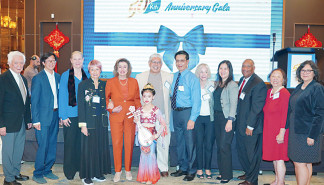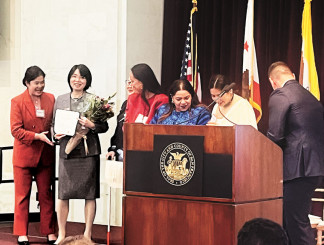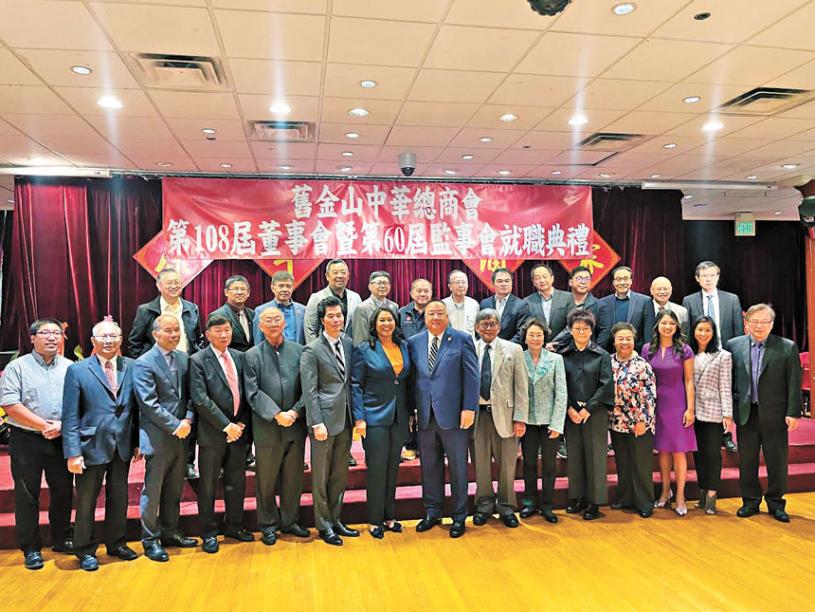
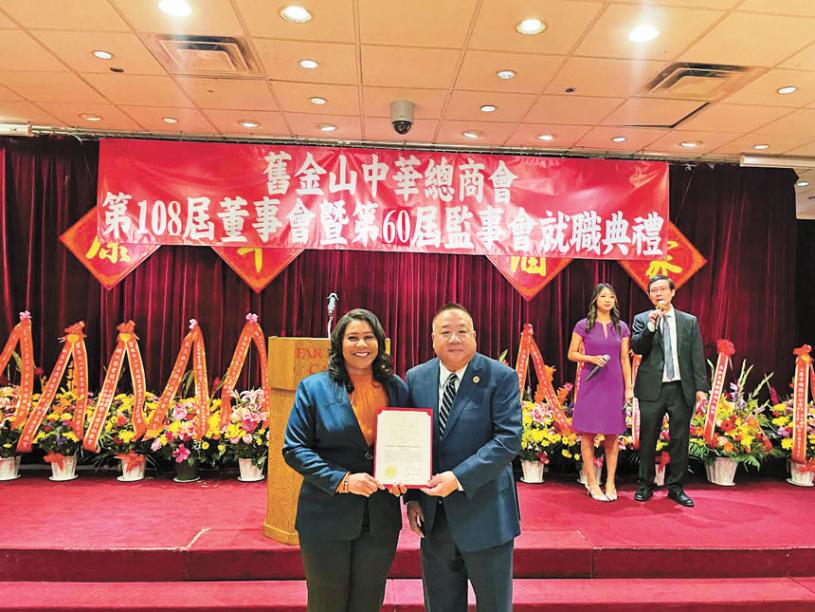
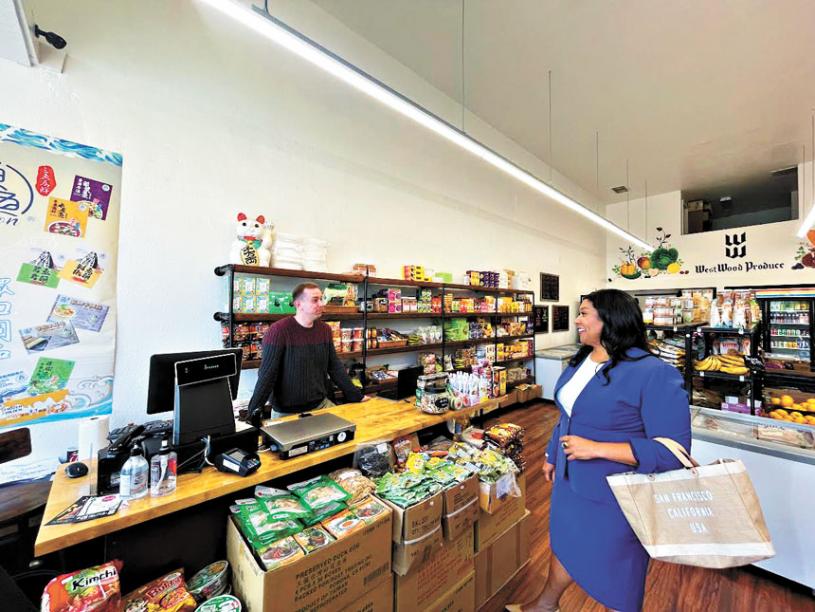


親愛的讀者們:
作為灣區和加州的經濟中心,三藩市是一個擁有人才、資源和創新精神的城市。 振興市中心、加強經濟發展並保持經濟主導體系的工作要求我們改革稅務結構。 我們可以把營業稅設定為既能提供我們依賴的重要市政服務,又能使在吸引和留住業務方面更具競爭力。
正因如此,我與市議會議長佩斯金和市參事孟達文合作,宣佈了改革三藩市商業稅的下一步措施,目標是把選舉提案放進在2024年11月的選票上。 財政官何世豪、主計長羅申福和市府首席經濟分析師伊根釋出的一份報告分析了三藩市商業稅制度在疫情後復甦下的脆弱性。
報告發現:
.營業稅收越來越依賴於科技業、金融服務和相關的辦公行業。 這些行業在疫情後接受了遙距工作,並減少了其於三藩市和其他地區租賃的辦公空間。 在這種情況下,與灣區內其他辦公地點相比,市內的高商業稅負擔可能會使其容易受到大型納稅公司把辦公室合併到三藩市以外地區的影響。
.鑑於當前稅收的計算機制,在家工作可以直接影響企業向市府繳付的稅款。 遙距工作對市內的收入產生了相當大的財政影響。
.透過商業租金稅和轉讓稅,市府的稅收越來越依賴商務產業。 遙距工作可能會降低與商務產業相關的租金和價值,這將導致市內未來收入疲軟。
.選民通過的稅收措施,加上市內經濟的結構變化,創造了一個高度累進的體系,其中最大的五家企業——佔企業納稅人的0.04%——支付24%的收入。 除了這些企業離開城市的風險外,這種系統可能不穩定,與擴大稅基以促進收入穩定的政策目標背道而馳。
為了啟動市內商業稅收結構改革的下一步措施,我們要求了財政官何世豪和主計長羅申福召集商界和其他利益相關者以制定具體的改革建議。 在2023年底前向我和市議會提交一份公開報告,以制定一項供選民在2024年11月選舉提案。
審查和改革商業稅是市府振興市中心努力的一個重要步驟。 這包括實施我在三藩市市中心未來路線圖中制定的政策和其他一系列政策,將市中心轉變為一個更強大、更有彈性、經濟和國際都會的計劃。 路線圖包括了九個主要策略,包括吸引和留住各多元行業和僱主。
最近,我與市議會就稅收改革措施達成了協議,透過推遲增稅和透過稅收激勵招募新企業,以穩定現有企業。市議會還通過了立法,以簡化空置辦公空間的用途轉換,並填補市中心和聯合廣場地區的空置商業空間。
這項工作將需要市政府、商界和全市利益相關者之間的合作。而最重要就是我們現在就要展開這工作。
請在微信上添加我以獲取更新和資源:londonbreed。
敬安!
三藩市市長
倫敦.布里德
Business Tax Reform
My fellow San Franciscans,
San Francisco is a city with the talent, the tools, and the innovative spirit to continue to be the economic heart of the Bay Area and California. Our work to revitalize Downtown, strengthen our economy, and remain an economic leader requires us to change how we structure our taxes. We can set our business taxes to both deliver the important services we all rely on while also making us more competitive to attract and retain business.
That is why in partnership with Board President Aaron Peskin and Supervisor Mandelman, we announced our next steps in the process to reform San Francisco’s business taxes, with a goal of placing a measure on the ballot in November 2024. A report issued by Treasurer Jose Cisneros, Controller Ben Rosenfield, and the City’s Chief Economist Ted Egan analyzed the key vulnerabilities of San Francisco’s business tax system in the context of our post-pandemic recovery.
The report found:
Business tax revenue increasingly relies on the technology, financial services and related office industries. These industries have embraced remote work after the pandemic, and reduced the amount of office space they lease, both in San Francisco and elsewhere. In this context, the City’s high business tax burden, compared to alternative Bay Area office locations, may make it vulnerable to large taxpayers consolidating offices outside of San Francisco.
Working from home can have a direct effect on how much tax a business owes the City, given the mechanics of how current taxes are calculated. Remote work has a sizable fiscal impact on the City’s revenue.
The City’s tax revenue is increasingly reliant on commercial property, through its Commercial Rents Tax, and Transfer Tax. Remote work is likely to reduce the rent and value associated with commercial property, which will lead to future revenue weakness for the City.
Voter-approved tax measures, along with structural changes in the city’s economy, have created a highly progressive system in which the largest five businesses — who make up 0.04% of business taxpayers — pay 24% of the revenue. In addition to the risk of these businesses leaving the city, such a system is potentially unstable and runs counter to the policy goal of broadening the tax base to promote revenue stability.
To initiate next steps in reforming the City’s business tax structure, we requested that Treasurer Cisneros and Controller Rosenfield convene a process with the business community and other stakeholders to develop specific reform recommendations. The process will result in a public report back to me and the Board of Supervisors by late 2023, to frame the development of a measure for the consideration of the voters in November 2024.
Examining and reforming business taxes is a key step in the City’s efforts to revitalize Downtown. This includes implementing policies and a range of policies laid out in my Roadmap to Downtown San Francisco’s Future, which is the City’s plan to transform Downtown into a stronger, resilient, economic and global destination. The roadmap includes nine key strategies including attracting and retaining a diverse range of industries and employers.
Most recently, I reached an agreement with the Board of Supervisors on tax reform measures to stabilize existing businesses by delaying tax increases and recruiting new ones through tax incentives. The Board has also passed legislation to ease conversion of vacant office space and fill empty commercial space in the Downtown and Union Square areas.
This work will require partnership between City Hall, the business community, and stakeholders across the City — and it’s critical we start this process now.
Please add me on WeChat for updates and resources: londonbreed.
Sincerely,
London N. Breed
Mayor

